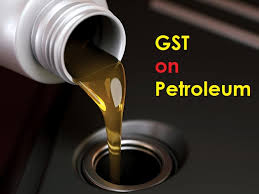 Consensus with states on the inclusion of petroleum products in the ambit of GST would never emerge as they and the Centre are over-dependent on the sector for revenue collection, says industry body ASSOCHAM. Finance Minister Arun Jaitley told Rajya Sabha on December 19 that the Centre favoured bringing them under GST but it would want a consensus with the states before taking such a step. ASSOCHAM (The Associated Chambers of Commerce and Industry of India) today said it is always desirable for petroleum to be brought under the GST for effecting overall efficiency in the fuel value chain and reducing the tax burden on consumers. “However, realistically speaking both the Centre and States have been over-depending on petroleum sector for their revenue collection. Collectively, they impose over 100-130 per cent taxes on petrol and diesel”, it said. “So, while it is desirable, the resistance is expected from both Centre and States, whatever they may say; after all, are they willing to sacrifice revenue? and if yes, what alternative sources do they have for the revenue? “The maximum GST slab is 28 per cent and even if some cess is allowed over and above, it can go up to 50 per cent; still consumers would gain. Big point is: governments would not agree easily!”, ASSOCHAM Secretary General D S Rawat told PTI.
Consensus with states on the inclusion of petroleum products in the ambit of GST would never emerge as they and the Centre are over-dependent on the sector for revenue collection, says industry body ASSOCHAM. Finance Minister Arun Jaitley told Rajya Sabha on December 19 that the Centre favoured bringing them under GST but it would want a consensus with the states before taking such a step. ASSOCHAM (The Associated Chambers of Commerce and Industry of India) today said it is always desirable for petroleum to be brought under the GST for effecting overall efficiency in the fuel value chain and reducing the tax burden on consumers. “However, realistically speaking both the Centre and States have been over-depending on petroleum sector for their revenue collection. Collectively, they impose over 100-130 per cent taxes on petrol and diesel”, it said. “So, while it is desirable, the resistance is expected from both Centre and States, whatever they may say; after all, are they willing to sacrifice revenue? and if yes, what alternative sources do they have for the revenue? “The maximum GST slab is 28 per cent and even if some cess is allowed over and above, it can go up to 50 per cent; still consumers would gain. Big point is: governments would not agree easily!”, ASSOCHAM Secretary General D S Rawat told PTI.
It is because of the revenue collection that consensus would never emerge. In fact, not even one state would be willing to forego revenue; same is true about the Centre, he argued. “Is the Centre willing to forego revenue?, why then blame states alone?. It appears that at this point of time, the consensus, among the states, would be to postpone it. But, the consumer pressure must continue so that going forward, over-dependence of exchequer on petroleum is reduced”, Rawat added.
Source: Financial Express
We have launched Single Platform on GST Compliances In India, assisting in 4 areas – 1) Migration, 2) GST Compliance, 3) Training and 4) Transition & Implementation. Click this link for any assistance.

 Toll Free:
Toll Free:  Contact Us
Contact Us

